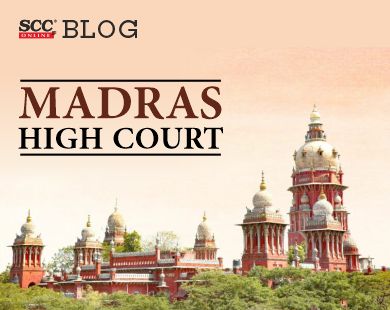Madras High Court: In a writ appeal filed against the order of the Single Judge directing the Tamil Nadu State Transport Corporation (‘TNSTC')(‘appellants') to treat the petitioner/respondent maternity leave period as duty period for all purposes, the division bench of S. Vaidyanathan and Mohammad Shaffiq, JJ. upheld the Single Judge order grantingpaid maternity leave to the respondent.
Diving into the background of the matter, the petitioner was sponsored through Employment Exchange for the position of Assistant Engineer at TNSTC, Coimbatore. She was appointed on a temporary basis and, joined service on 16-09-2013. The petitioner got married prior to the appointment and was expecting her first child at the time of joining. Hence, while she was under training, she applied for maternity leave for 180 days, which was granted as a loss of pay while keeping her services.
The Single Judge Bench of the Madras High Court quashed the TNSTCorders refusing grant of maternity benefits to the petitioner. The court also directed TNSTC and others to treat the said 180 days of petitioner's leave as duty period for all purposes In the present appeal against aforementioned orders, TNSTCpointed out that the petitioner's appointment with TNSTC was only done on a temporary basis. Based on maternity rules, it was claimed that “a woman employee with regular scale of pay, upon completion of one year of service alone can claim the maternity benefits on production of medical certificate”. In addition, it was also submitted that the Government order dated 21-05-1999 did not provide for grant of paid maternity leave during the training period. It is alleged that a non-permanent employee should have actually worked for at least 160 days in the past 12 months, while the petitioner only worked for 145 days, denying her eligibility for maternity leave under suitable provisions.
The Court rejected the narrow interpretation given by TNSTC that the employee must have actually worked for 160 days for a period of 12 months cannot be accepted, as it would suffice, if the employee completed 160 days even in a period of less than 12 months, which means that it is not necessary that the employee should be on the roll for actual 12 months and completed 160 days in that 12 months.
The Court placed reliance on Workmen v. American Express International Banking Corpn., (1985) 4 SCC 71, and said that though the aforementioned decision was rendered under the context of the Payment of Gratuity Act, 1972, the principle laid down therein is that the employee should have completed the required number of days within the time stipulated and that the respondent has completed the same.
The Court also analysed the applicable maternity laws in various neighbouring countries, mainly China, Australia, Cuba, Pakistan and Singapore. Further, it rejected TNSTC reference to Letter dated 18-08-2022 for the purpose of distinguishing employees of a government company and civil servants for denial of maternity benefits.
The Court also relied on Municipal Corpn. of Delhi v. Female Workers (Muster Roll), (2000) 3 SCC 224. wherein it was held that “female workers, even working on casual basis or on muster roll on daily-wage basis should be given maternity benefit, and a woman employee cannot be compelled to undertake hard labour at the time of advanced pregnancy”.
TheCourt held that the respondent had rendered sufficient days of service and even assuming that there is a shortage of working days in the twelve calendar months, welfare legislation and the benefits cannot be deprived on mere interpretation and technicalities, as interpretation of law should be liberal to ensure marching towards enforcement and it should not defeat the very purpose of welfare scheme.
Further, it said that a woman is not a pendulam and cannot be forced to swing between motherhood and employment, as the maternity benefit relates to the dignity of a woman. Thus, TNSTC' s order depriving maternity leave and other benefits to the respondent is ex facie bad in law and has no legs to stand and should vanish.
Thus, the Court directed TNSTC to comply with the orders of a Single Judge within a period of 4 months. Failure to comply with the same will result in a cost of Rs. 50,000 to be recovered from the officers responsible to disburse the amount.
[Tamil Nadu State Transport Corporation (Coimbatore) Ltd v. B. Rajeswari, 2023 SCC OnLine Mad 143, decided on 12-01-2023]
Advocates who appeared in this case :
For Appellants : Advocate T.Chandrasekaran
For Respondent : Advocate P.Paramasivados







A good verdict. Every woman in an work spot should be in possession of this verdict.